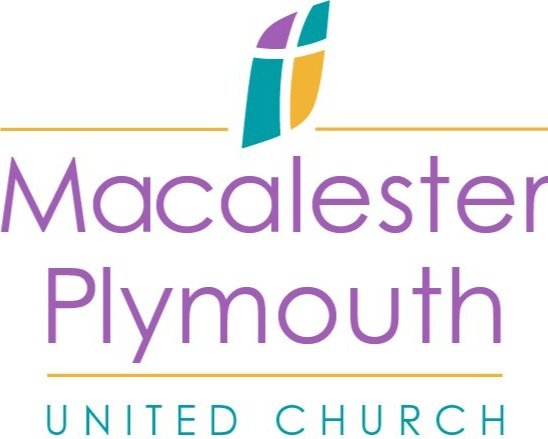MPUC Peace Statement
God’s Covenant with creation is given as grace and peace. Peace (shalom) is the wholeness and community in which human beings are meant to live. God continually renews the Covenant, first made with Noah, through our Lord Jesus Christ. God’s peace heals, confronts, strengthens, and frees.
The God we worship calls us out of ourselves. It is God who calls us to lose our lives for others, to take risks, to be open to change, and to being changed.
Responding to this good news, the church goes into the whole world to point to and become a part of God’s peace-giving. God’s peace is offered wherever there is brokenness-individual lives, families, congregations, communities, and nations. In God’s Covenant, the world and the church experience wholeness, security, and justice.
The General Synod of the United Church of Christ, and the General Assembly of the Presbyterian Church, through votes in 1983 and 1985, have affirmed each as a peacemaking church. Each and every member is called to proclaim the message of the gospel in a broken and insecure world. Therefore, people of faith engage in peacemaking not as a peripheral activity but as an integral part of their congregational life and mission. Responding to God’s Covenant, the session of Macalester Plymouth United Church now commits itself to peacemaking. In fulfilling this commitment, we will:
Help to provide worship that points to the reality of God’s peacemaking;
Encourage each member of the congregation to receive God’s peace in his or her own life. And through prayer and Bible Study, to seek it for today’s world;
Enable and equip all to grow as peacemakers in their families, in the congregation, and in the community;
Magnify the opportunity to enhance the international understanding we have because of its ties and proximity to Macalester College;
Help the congregation to work for social, racial, and economic justice and respond to people in the community who are caught in poverty, hurt by unemployment, or burdened by other problems; encourage the congregation to support human rights and economic justice efforts in at least one area of the world, such as Central America, southern Africa, the Middle East, East Asia, East Europe or Central Asia;
Work to end the arms race, reverse the worldwide growth of militarism, and reduce tension among nations;
Support the church-wide peacemaking effort financially through special offerings on World Wide Communion Sunday, and specific appeals in times of disaster, and assist those displaced by war.
The Session will lead and support the congregation in the peacemaking response of God’s Covenant. We will appoint a member or commit to be our contact with the presbytery and conference task forces and commit ourselves to be responsive to the information, resources, and opportunities that our representatives bring back to the session.
Adopted by the congregation in 1985
You can learn more about the “Just Peace” designation on the UCC’s website.
Our Peace Pole
Did you know that we have an international Peace Pole outside our main entry? It was placed there about twenty years ago as our church grappled with our country’s march to war in Iraq and Afghanistan. It says “May Peace Prevail on Earth” in eight languages. However, in recent years, the Dakhota plate had disappeared. To get it replaced was not as simple as translating English words.
What does peace mean? Is it just the absence of war or conflict? What do we want when we say “may it prevail”? Is this simply a bunch of lofty words we utter to feel better about the injustice in the world? Our neighborhoods? What does this sign mean in the face of unresolved and ongoing injustices? It’s time to take a hard look at questions such as these as we move forward in our discernment to counter racism as a church community.
As such, getting this language translation became a learning opportunity. Dakhota elder and language teacher Barry Hand authenticated the wording: Unci maka akan wodakhota unkagapi kte. Not simply a word-for-word translation, this conveys the idea of honoring the sacredness of all creation and acting to restore and protect it. Re-examining our history is part of an authentic commitment to justice.
Macalester Plymouth Church stands on land removed from the Dakhota people in a succession of treaties. On Aug 5, 1851, the second of two U.S. Treaties was signed with Dakhota representatives at Oheyawahe (Pilot Knob) in Mendota Heights. These treaties surrendered the vast majority of Dakhota land in Minnesota—24 million acres—all Dakhota land in Minnesota except leaving for ten miles on both sides of the Minnesota river, from Lake Traverse near the South Dakota border to Mankato. The fall-out from this loss of land, livelihood and resources led to the U.S-Dakota War of 1862, the incarceration of 1600 Dakhota in a concentration camp at Fort Snelling, and the largest mass execution in U.S. history at Mankato. Gov. Ramsey issued a proclamation in 1863 that the Sioux Indians must be “exterminated or forever driven” from Minnesota (this stood until 150 years later when Gov. Dayton repudiated it!). Three small tribal agencies remain today.
In recognition of that land loss and its impacts, on this 171st anniversary of the treaty signing, we are reinstating Dakhota language to our peace pole, just one small step in committing ourselves, our church, to work for peace with justice.

